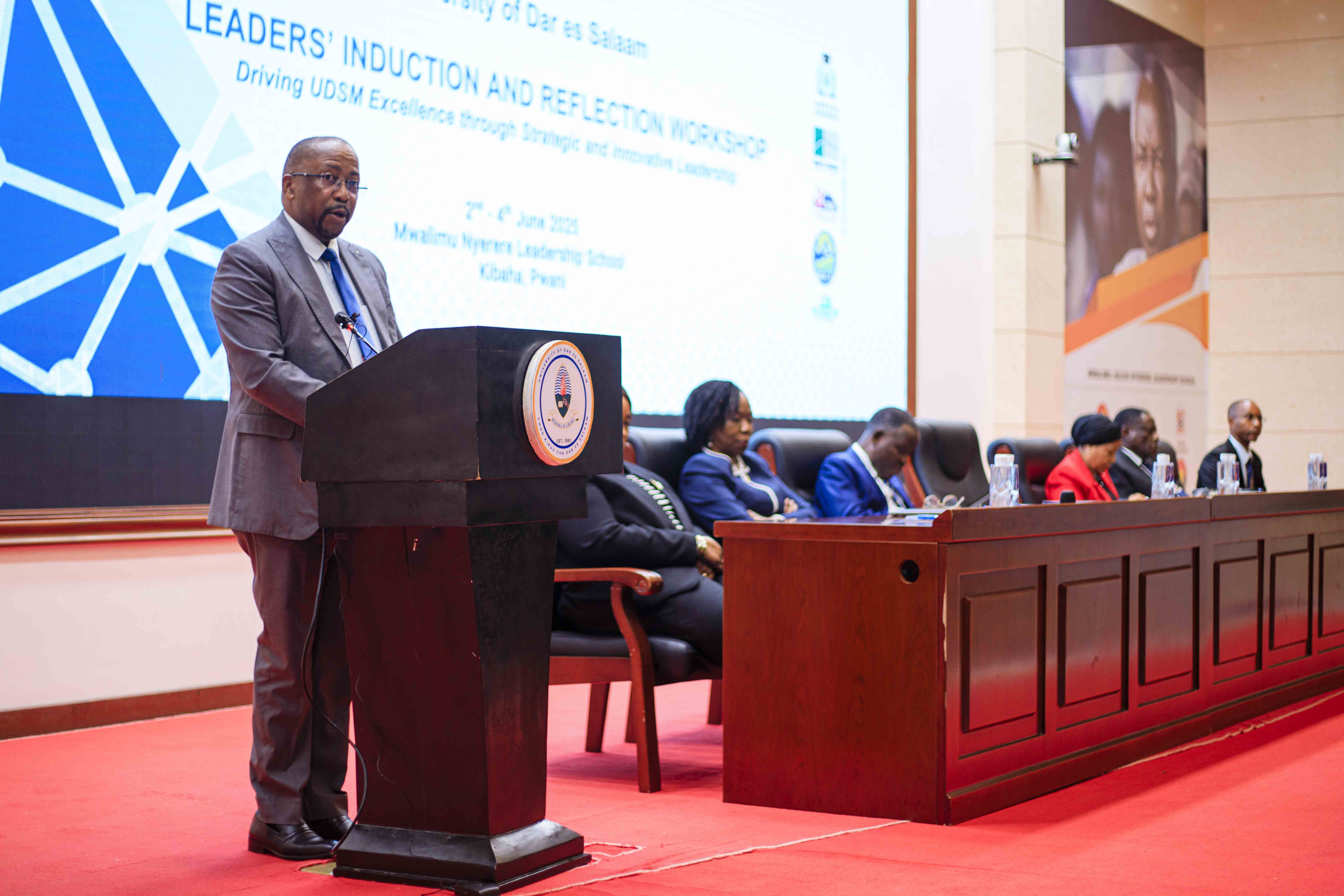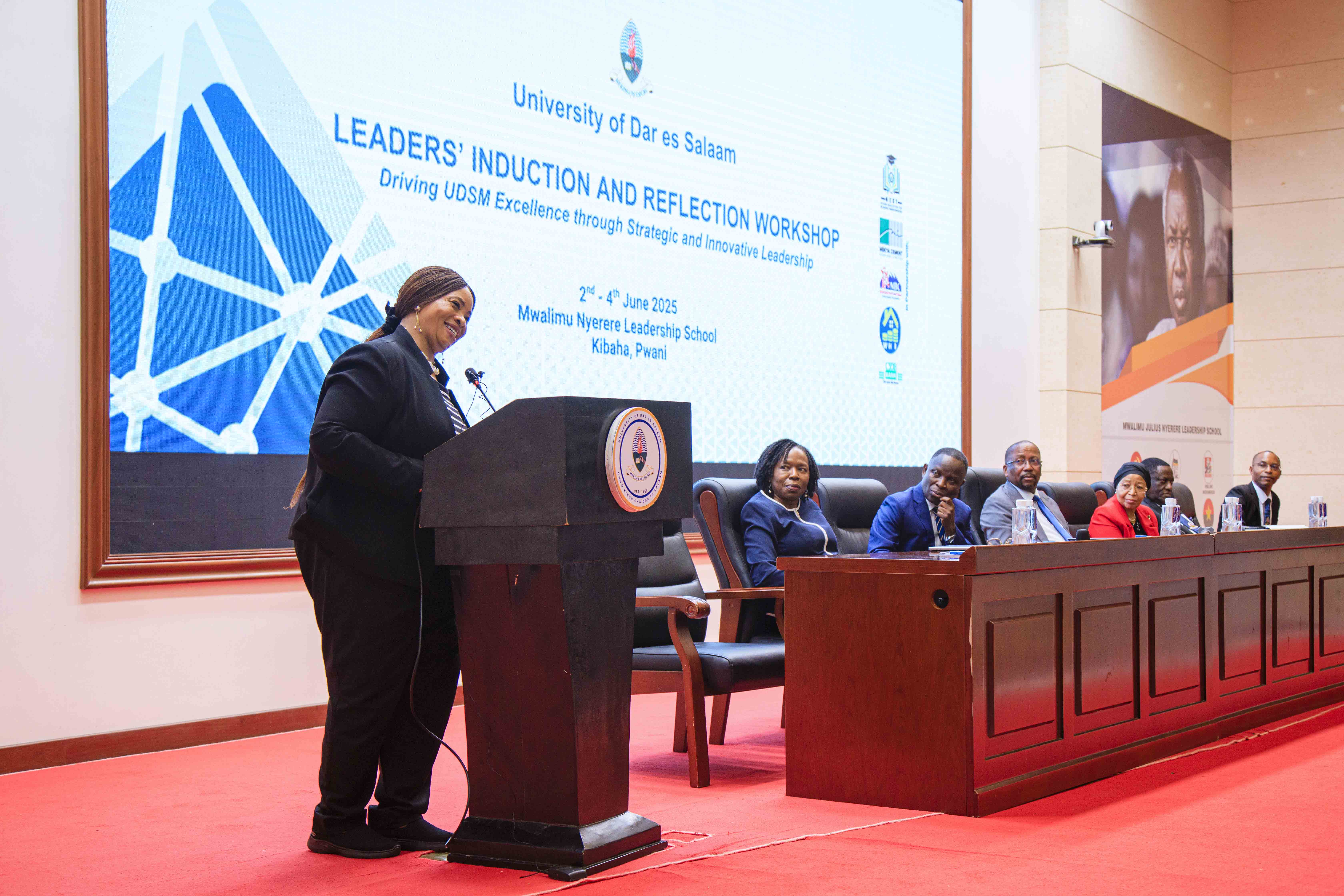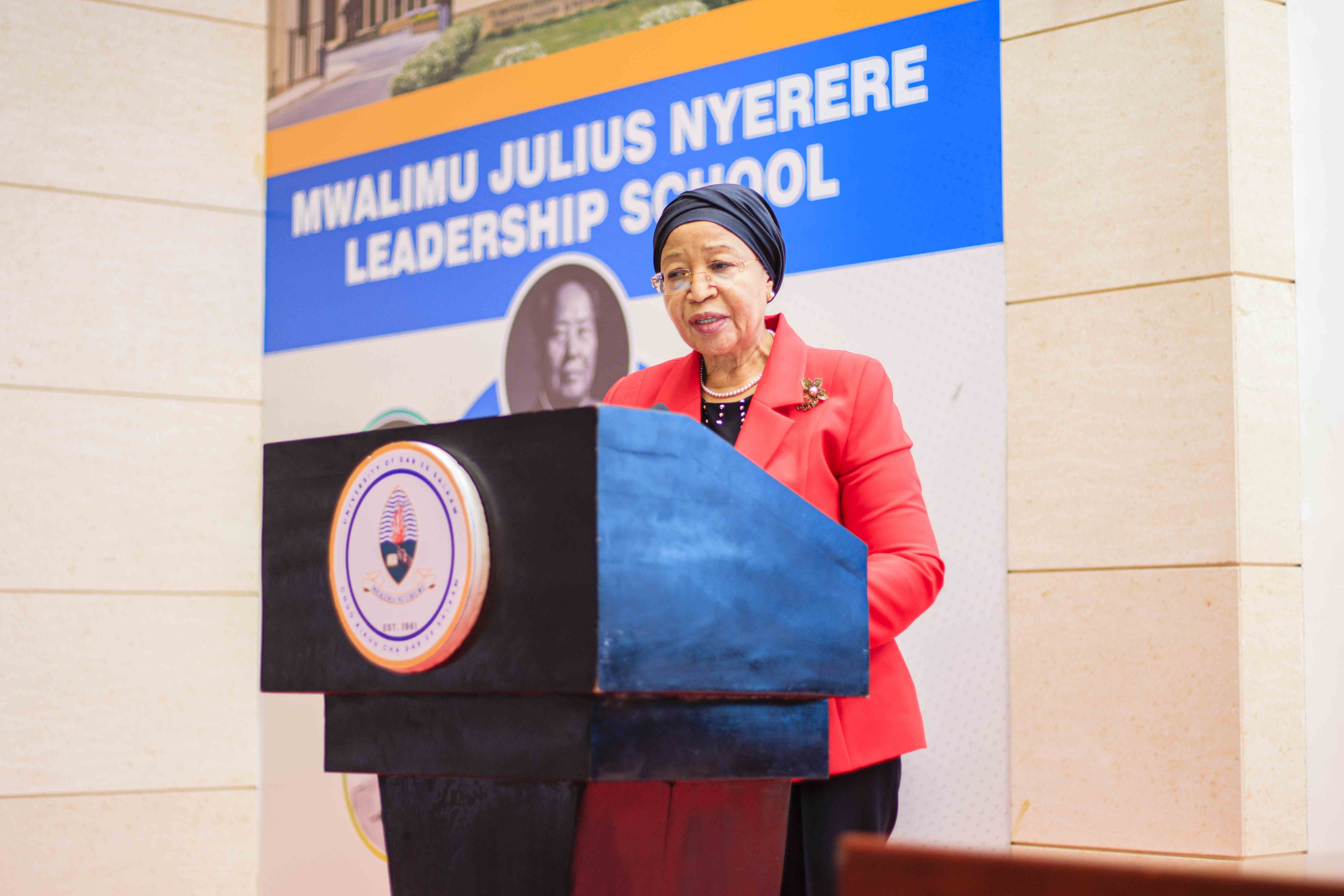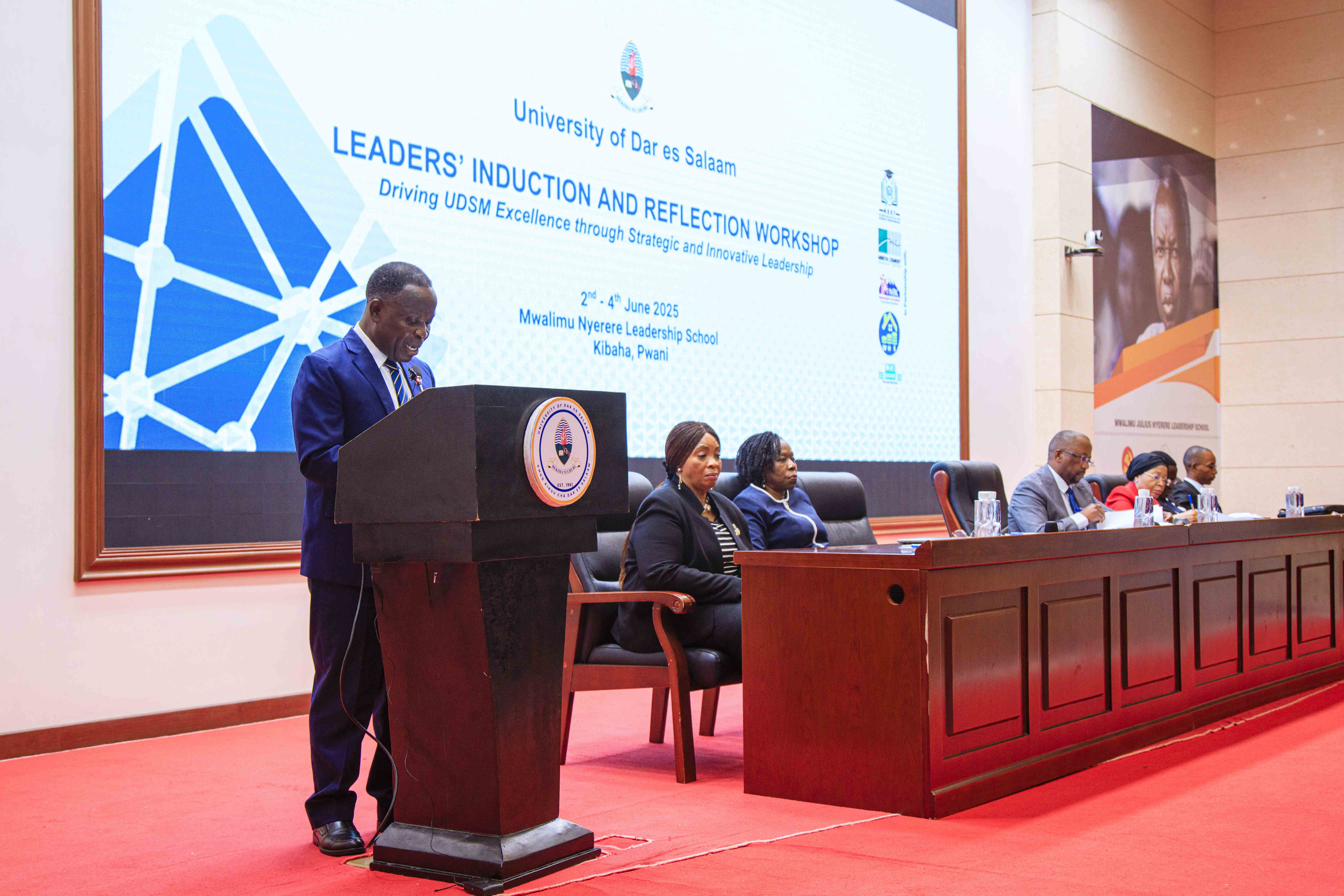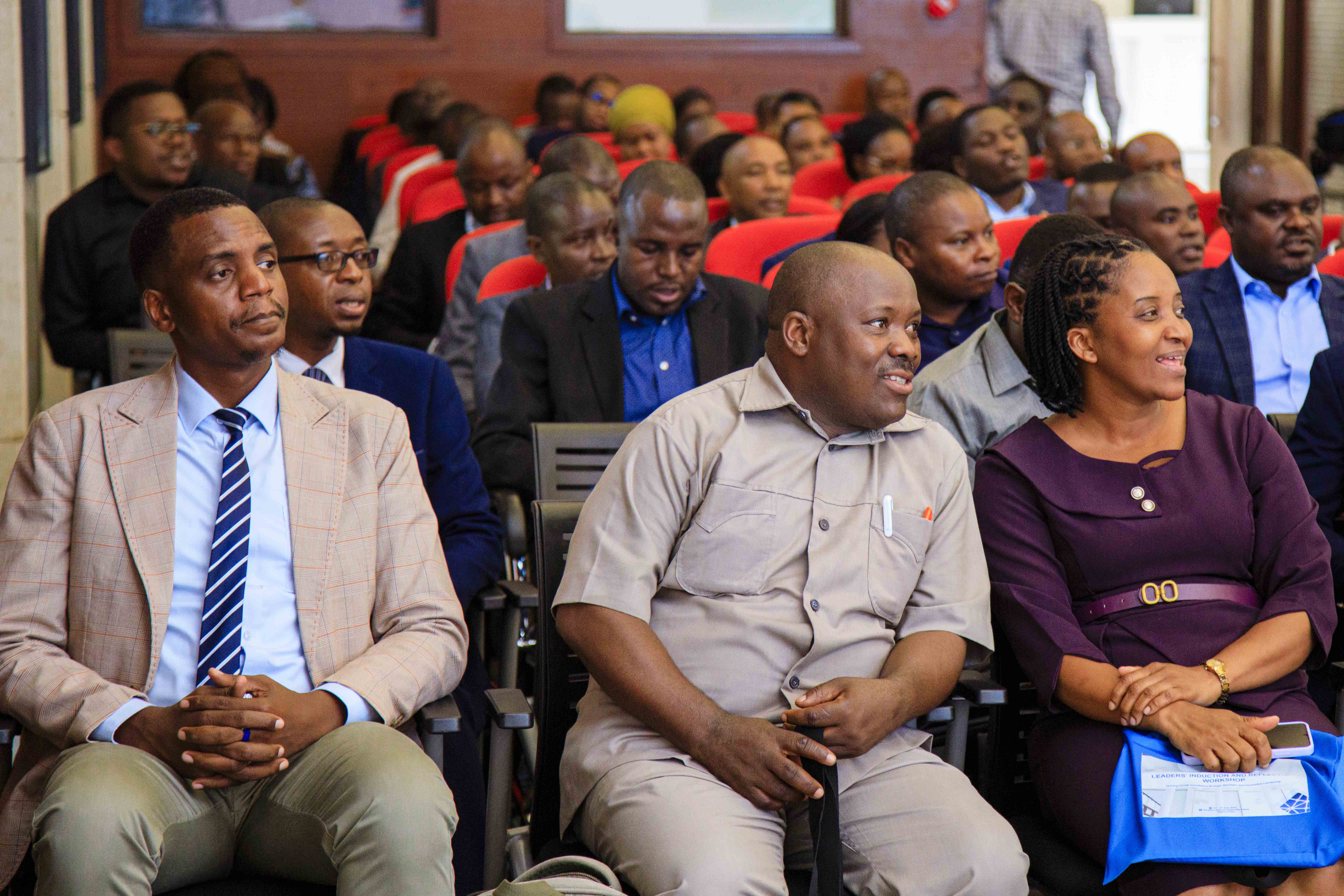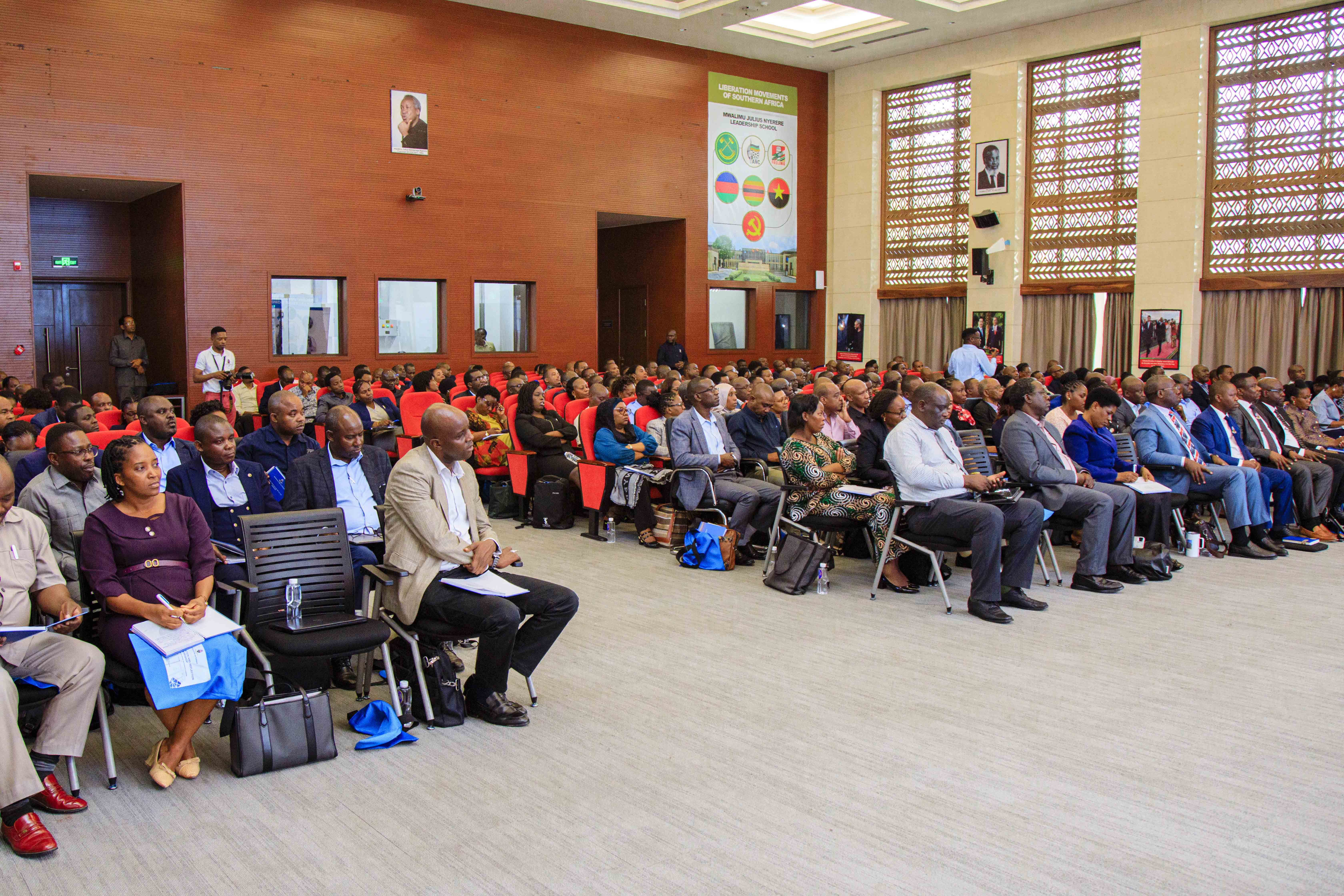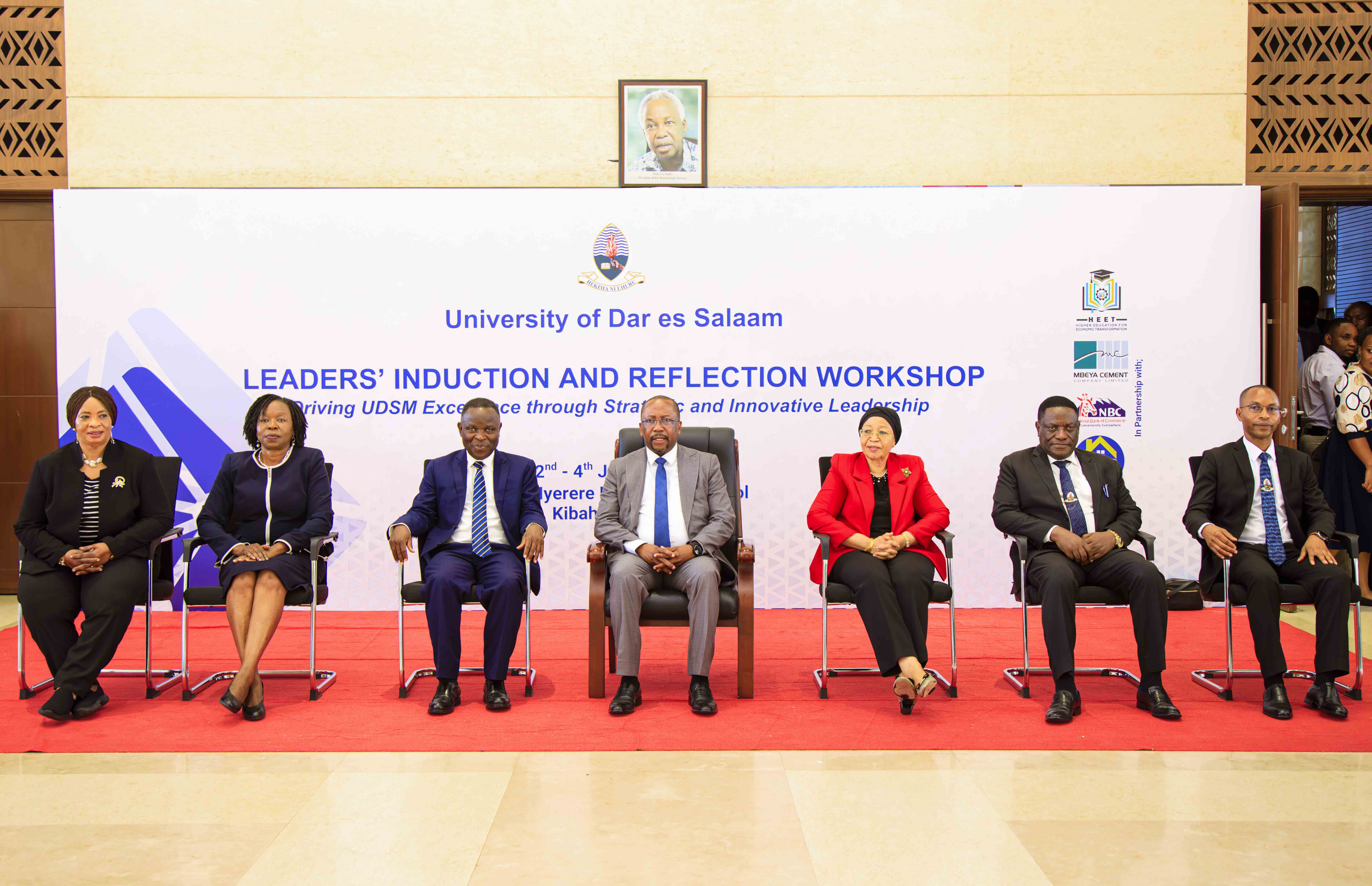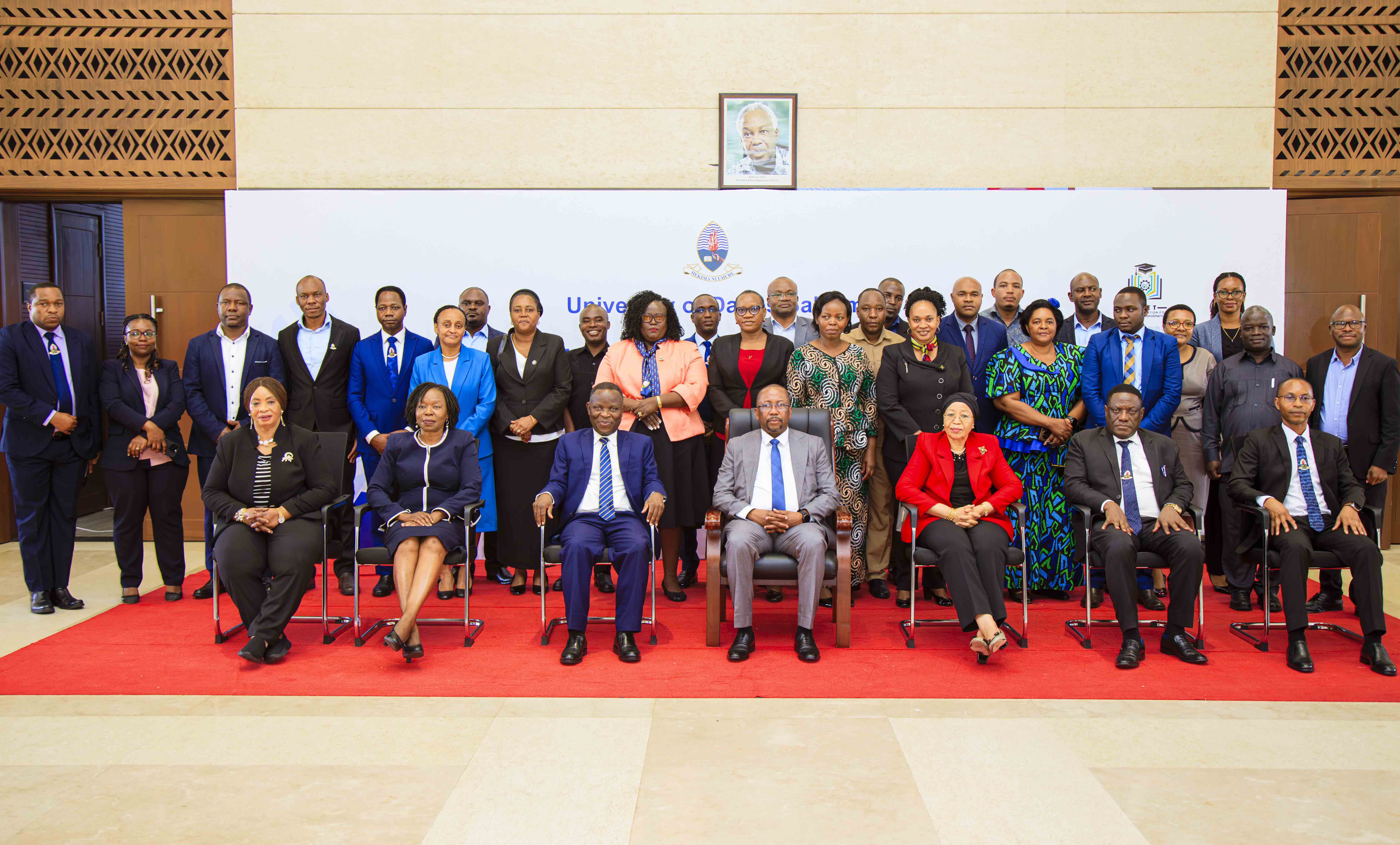UDSM Leadership Induction Workshop Underscores That “Leaders Are Formed, Not Born”
By Special Correspondent, CMU
In a powerful message delivered on behalf of the Government at the opening of the Leadership Induction Workshop for the University of Dar es Salaam (UDSM), participants were reminded that great leadership is not innate but cultivated through continuous learning, reflection, and strategic action.
This was said by Mr. Xavier Daudi, Deputy Permanent Secretary in the President’s Office – Public Service Management and Good Governance, who represented the Permanent Secretary, Mr. Juma Selemani Mkomi, as the Guest of Honour.
Speaking at the opening of this strategic workshop, Mr. Daudi commended UDSM’s commitment to grooming effective and ethical leadership in the higher education sector.
“This workshop demonstrates a deep understanding that good leadership is not confined to position or authority—it is built through continuous training, deep reflection, and the ability to implement strategic plans effectively,” he said.
Held at the Mwalimu Julius Nyerere Leadership School in Kibaha from June 2–4, 2025 the workshop brought together newly appointed and current senior leaders from UDSM and its constituent colleges—Dar es Salaam University College of Education (DUCE) and Mkwawa University College of Education (MUCE)—under the theme: ‘Driving UDSM Excellence Through Strategic and Innovative Leadership’.
Mr. Daudi further praised UDSM’s effort to institutionalise leadership development and noted the government’s continued support, including the allocation of 281 new staff positions in the current year and ongoing reforms in public service systems to enhance efficiency, transparency, and accountability.
Varsity success and quality of leadership
In his welcoming remarks, Prof. William A.L. Anangisye, Vice Chancellor of UDSM, acknowledged the importance of leadership training, particularly in academic institutions with complex responsibilities. “Our success as a university depends on the quality of leadership we nurture—leaders who are committed, visionary, and accountable”.
Prof. Anangisye underscored that leadership at UDSM requires both privilege and duty, and called on all leaders to uphold the institution’s mission with integrity, unity, and foresight.
The workshop addressed key strategic areas such as academic and administrative governance, financial sustainability, procurement regulations, human resource management, digital security, and implementation of the Higher Education for Economic Transformation (HEET) Project.
These sessions aligned with UDSM Vision 2061, which aspires to make UDSM a world-class university by its centenary anniversary.
The workshop brought together UDSM leaders including Deputy Vice Chancellors, Principals, Deans, Directors, Heads of Major Units, Managers, Coordinators, Heads of Departments and Heads of Sections.
Participants applauded the seminar for offering a timely platform for self-reflection, institutional learning, and strategic alignment. With a clear emphasis on collective accountability, results-driven leadership, and innovation, the event set a firm foundation for a renewed leadership culture across UDSM.
The workshop closed with a resounding call for all leaders to apply the lessons learned and collectively drive UDSM’s excellence in teaching, research, innovation, and service to society.


